Health Care Bankruptcy: A Primer of a Provider’s Chapter 11 Case
By David A. Samole
Various factors including increased competition and reimbursement landscape challenges have led hospitals and other healthcare providers to file for bankruptcy over the last few years. For the remainder of 2017, due in part to the current uncertainty in the healthcare industry and its legislative oversight, more financially distressed providers are considering Chapter 11 bankruptcy to effectuate closures, consolidation, restructurings and related transactions. The following are some of the aspects of bankruptcy specific to healthcare providers that they need to consider when weighing this decision.
Additional Parties and Issues in Healthcare Provider Chapter 11 Cases
A. The Patient Care Ombudsman
Healthcare provider bankruptcies differ from ordinary Chapter 11 cases, as they address unique issues regarding patient care, record keeping and privacy rights, at times with intermediary oversight by a court-appointed patient care ombudsman. The Bankruptcy Code requires the appointment of a patient care ombudsman within 30 days after commencement of a “health care business” bankruptcy case, unless the court finds that an ombudsman is not necessary for the protection of the patients under the circumstances of the case.1 The ombudsman must report every 60 days regarding the quality of patient care, based on onsite inspections, quality control reports and other review mechanisms. The fees of the ombudsman are paid by the bankruptcy estate and are entitled to administrative expense priority. Generally, appointment of an ombudsman is more frequent with operating Chapter 11 providers and less frequent with liquidating providers, where the court takes a cost-benefit analysis between the need for patient care oversight (for those Chapter 11 providers still operating) against the financial condition of the bankruptcy estate.
B. Government and Private Insurance Company Payors
Healthcare provider bankruptcies are complicated by disputed bankruptcy court jurisdiction over the provider reimbursements and payor claims reconciliation process relative to exhaustion of administrative remedies, the automatic stay, and setoff and recoupment rights, as well as disputing the treatment of provider agreement obligations in free and clear sales and/or assignments of executory contracts under Sections 363(f) and 365 of the Bankruptcy Code.
i. Pledging Government Receivables as Collateral
Many times receivables owed from a payorare pledged as collateral to a provider’s lender, similar to when a bank takes a mortgage as collateral for providing a home loan. Pledged receivables raise issues in the government payor context. Exercising remedies on government accounts receivable is complicated because the receivables are subject to related federal and state “Anti-Assignment Rules” affecting Medicare and Medicaid healthcare programs. These Anti-Assignment Rules require that Medicare and Medicaid payments be made only to a deposit account over which the healthcare provider has sole control.2Any attempt by a provider to assign these receivables in violation of the Anti-Assignment Rules may result in the termination of the provider’s participation agreement in the Medicare and Medicaid programs. Such termination would de-stabilize the provider’s flow of revenue, making reorganization much more difficult, if not impossible. However, many parties have enacted a successful work-around mechanism in which the government receivables are deposited directly into a provider’s bank account, and then the government payments are subsequently swept daily into a second deposit account under the lender’s control. Upon a provider bankruptcy filing, however, a lender must stop the automatic sweep of cash from the provider’s account due to the Bankruptcy Code’s automatic stay. The automatic stay works by operation of law without any further court order as an automatic injunction in place as of the petition date against creditor lawsuits and collection efforts as to Chapter 11 entities and their property.3 As such, it is advisable for Chapter 11 providers and their lender to enter into cash collateral agreements subject to bankruptcy court approval, which typically provide for adequate protection payments and a negotiated budget.
ii. A Fight Over Where to Fight with Payors
Outside of bankruptcy, the federal government and its contractors routinely withhold Medicare and Medicaid payments upon determination that a healthcare provider has been overpaid on a prior unrelated reimbursement claim. Under 42 U.S.C. § 405(h), federal courts may take jurisdiction over Medicare disputes only after a party exhausts applicable appeal processes within the Medicare system. The federal courts are split regarding the plain language of 42 U.S.C. § 405(h), as it relates to bankruptcy courts’ jurisdictional limitations, thus impacting a provider’s protections in Chapter 11. Some Circuit Courts of Appeal have determined that a requirement to exhaust administrative remedies is inapplicable in bankruptcy cases; others have found that exhaustion of administrative remedies applies even in federal bankruptcy court.4 A provider in bankruptcy currently has a petition on file with the United States Supreme Court for certiorari review of this issue.5
Forum disputes also exist between network providers in bankruptcy and their private insurance payors, as most contracts contain arbitration clauses and administrative remedies provisions. There is some disagreement by courts as to the enforcement of arbitration clauses in the bankruptcy context.6
iii. Payor Take-Backs as Setoffs or Recoupment
The government system regarding Medicare and Medicaid payments differs meaningfully from private insurance company payments. Government payments to many providers are made on an interim basis under a prospective reimbursement system, which results in payments before a determination that the services rendered are covered and costs are reasonable. Due in large part to the prospective payment system, more courts than not find that the subsequent take-backs are permissible recoupments as part of a single, integrated and ongoing transaction between the government and the payor.7In the private insurance company setting, payments are not made on a prospective reimbursement system; instead claims are vetted and approved prior to initial payment. Yet there are instances of payment error which trigger requests for overpayment reimbursement. Many insurance company payors resort to unilateral take-backs where they apply their asserted reimbursement overpayment against a more recent valid claim of an unrelated patient. Because private insurance company payments are not made on an integrated, prospective reimbursement system like government payors, the private insurance company payors seemingly have a weaker argument to support that these take-backs are recoupments instead of a setoff. This distinction between calling a take-back a setoff or recoupment is important because setoffs are subject to the Bankruptcy Code’s automatic stay, and generally setoff obligations fall within claims that can be sold free and clear in bankruptcy sales merely attaching to sale proceeds, but not applied against a bankruptcy purchaser of a provider license. In addition, setoff may not be permitted by the Court, as violating the Bankruptcy Code’s temporal aspects concerning mutuality of obligation – when the alleged overpayment itself occurs prior to the bankruptcy filing, but the takeback would occur after the bankruptcy filing. Recoupments, however, are not subject to the automatic stay nor the distribution scheme for creditors, and may not be discharged in a bankruptcy sale or plan confirmation. However, payor recoupment actions remain an equitable defense remedy subject to judicial determination upon challenge by a provider.
iv. Sales of Provider Numbers Free and Clear of Government Payor Claims
The relationship between the Medicare/Medicaid programs and providers is captured in a written provider agreement, which affords providers a license/number to participate in the Medicare/Medicaid reimbursement program. A dispute arises when the provider seeks a sale of assets in bankruptcy, including the provider number. The government’s general position in bankruptcy is that the provider agreement is an executory contract subject to the Bankruptcy Code requirement that its obligations (the overpayments) must be cured before it can be assumed and assigned to a purchaser/assignee.8
Providers and purchasers tend to argue that the provider licenses/numbers are not executory contracts and are licenses/assets that can be sold free and clear of the overpayment obligations existing at the time of the sale. The general rationale is that the provider license is not a negotiated agreement like most contracts, but is a regulatory form application that is completed and approved by the government. Also, a ruling requiring a cure prior to assumption/assignment or of potential successor liability either would block the sale or greatly diminish the value of the assets, impeding an ability to maximize value for case constituents. However, even if the provider license is not deemed to be an executory contract, if the overpayment recovery actions are deemed a recoupment, then more bankruptcy cases than not hold that a bankruptcy sale still could not extinguish that claim against the purchaser.9 Because of this issue, often settlements are reached and work-arounds are accomplished, such as setting up a portion of the sale proceeds in escrow or setting up a waterfall overpayment recovery scheme: first from the sale proceeds, then other bankruptcy estate funds on hand, and finally perhaps a budgeted annual-capped amount from the purchaser.
Conclusion
Healthcare provider Chapter 11 cases are multi-faceted and include additional parties and issues than standard Chapter 11 cases. A financially distressed provider considering Chapter 11 is best served to find a properly vetted stalking horse deal partner prior to filing the case and engage in meaningful discussions with its payors and lenders, if possible. Providers should aim to move the case to the sale and Chapter 11 plan process expeditiously where the jurisdictional, license and setoff-recoupment issues can be teed up and addressed in short order, during which time patient care can be properly maintained pending litigation and further settlement discussions with the creditor constituents.
***
David A. Samole is a Partner at KozyakTropin& Throckmorton, LLP in Miami, Florida. He focuses his practice on healthcare litigation, corporate bankruptcy and insolvency-related litigation matters. He represents healthcare providers in disputes with managed care companies and government payors as well as parties in corporate reorganizations, liquidations, workouts and financially distressed transactions. He may be reached at das@kttlaw.com.
Click here for the original article.


